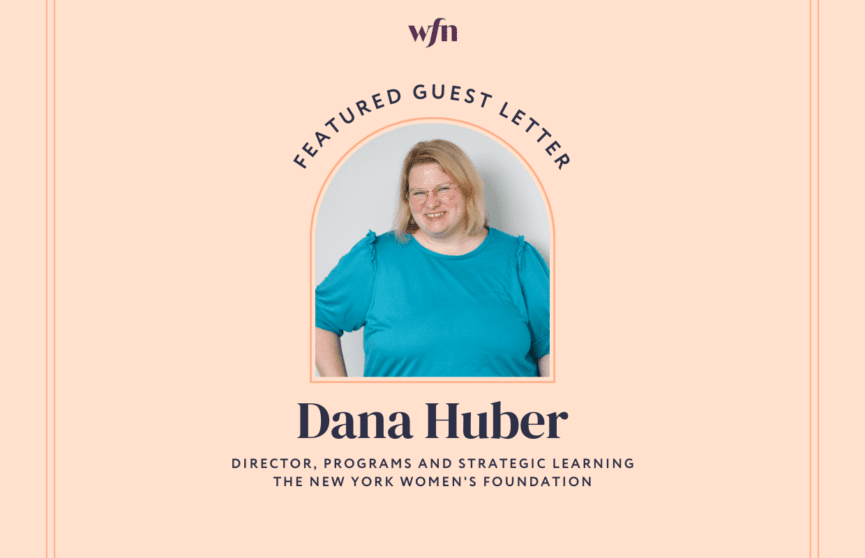Dear Colleagues,
This July, we recognized the 33rd anniversary of the passage of the Americans with Disabilities Act. Throughout the month, we celebrated Disability Pride, recognizing disability as a common part of the human experience. During this time, we uplifted the important efforts of disability justice movement leaders and learned from their work.
As we move further into the year, there is an opportunity for gender justice funders to reflect and consider how their work is inclusive of people with disabilities, including their own employees. According to the Disability and Philanthropy Forum, only one penny of every $10 in U.S. grantmaking goes to disability rights and justice work. We as a sector are in debt to the organizations and leaders in the disability justice space. This is a journey we have been on at The New York Women’s Foundation, and we know we have space to continue to learn and grow.
Gender justice and disability justice are inextricably linked. An intersectional approach to grantmaking must include disability justice. However, this is not always the case in practice. For example, reproductive health programs don’t always fully consider people with disabilities. Other areas that gender justice funders care about are also closely linked with disability justice – from economic justice to safety and healing.
There is a long history characterized by tension between the women’s movement and disability justice movement. Our recent report, The State of Women and Girls with Disabilities in New York, recommends that:
“Funders should engage in long-term investments aimed at strengthening the relationship between reproductive rights and the disability justice movement, which has a very complicated history due to the reproductive rights movement’s early tolerance of eugenics arguments in legal fights for contraception and abortion access, which excluded people with disabilities as key constituencies. This disconnect has led to an absence of women with disabilities in leadership positions at sexual and reproductive rights organizations and, consequently, neglect of disability perspectives in the movement.”
It is time for gender justice funders to both acknowledge and deeply understand this history. We must recognize the impact that our movement has had on the lives of people with disabilities and begin to take clear steps to include this critical community in our funding practices, rather than at the margins of our budgets and strategies.
We call on all gender justice funders to further this essential dialogue about disability justice and encourage collective action among women’s foundations to uplift disability justice and inclusion in their work.
We recently started our efforts towards ensuring that disability justice is at the forefront of our work as a gender justice funder. One concrete step was joining the Presidents’ Council on Disability Inclusion in Philanthropy, a commitment to a continuing learning and implementation process that will advance systemic change within foundations and serve as models for disability inclusion in the philanthropic sector. Along with other grantmaking organizations, The New York Women’s Foundation also signed the Disability Inclusion Pledge in 2021, which recognizes that uplifting disability is a key element required to achieve social justice, equity, and inclusion, and calls for accountability as philanthropic organizations clearly define their efforts in this area.
Our goal is to invest in strengthening networks across the disability justice and gender justice communities to deepen understanding of the important work being done to inform collective action across our movements.
To learn more from each other and collaborate to meaningfully include disability justice in our grantmaking, we are creating a table of gender justice funders interested in having dialogue, taking action on this important issue, and developing a clear strategy for how we can make our work truly intersectional by centering women and gender expansive people with disabilities. To join the table, please reach out to Dana Huber, Director, Programs and Strategic Learning at The New York Women’s Foundation (dhuber@nywf.org).
Dana Huber
Director, Programs and Strategic Learning at The New York Women’s Foundation
To learn more from Dana, join us for Feminist Funded ’23: RISING where they are a featured speaker on Thursday, September 14.
